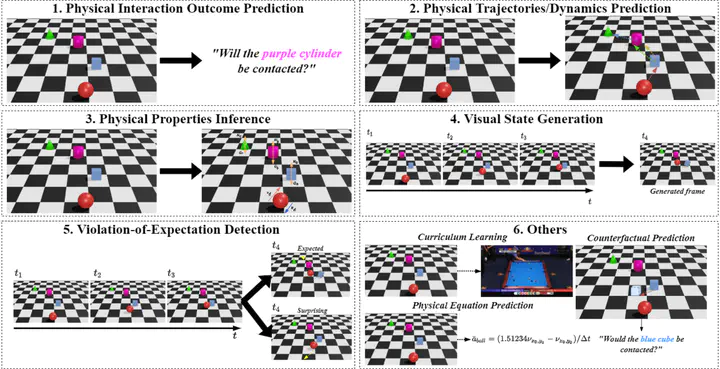
Abstract
Research in cognitive science has provided extensive evidence on human cognitive ability in performing physical reasoning of objects from noisy perceptual inputs. Such a cognitive ability is commonly known as intuitive physics. With the advancements in deep learning, there is an increasing interest in building intelligent systems that are capable of performing physical reasoning from a given scene for the purpose of advancing fluid and building safer AI systems. As a result, many of the contemporary approaches in modelling intuitive physics for machine cognition have been inspired by literature from cognitive science. Despite the wide range of work in physical reasoning for machine cognition, there is a scarcity of reviews that organize and group these deep learning approaches. Especially at the intersection of intuitive physics and artificial intelligence, there is a need to make sense of the diverse range of ideas and approaches. Therefore, this paper presents a comprehensive survey of recent advances and techniques in intuitive physics-inspired deep learning approaches for physical reasoning. The survey will first categorize existing deep learning approaches into three facets of physical reasoning before organizing them into three general technical approaches and propose six categorical tasks of the field. Finally, we highlight the challenges of the current field and present some future research directions.